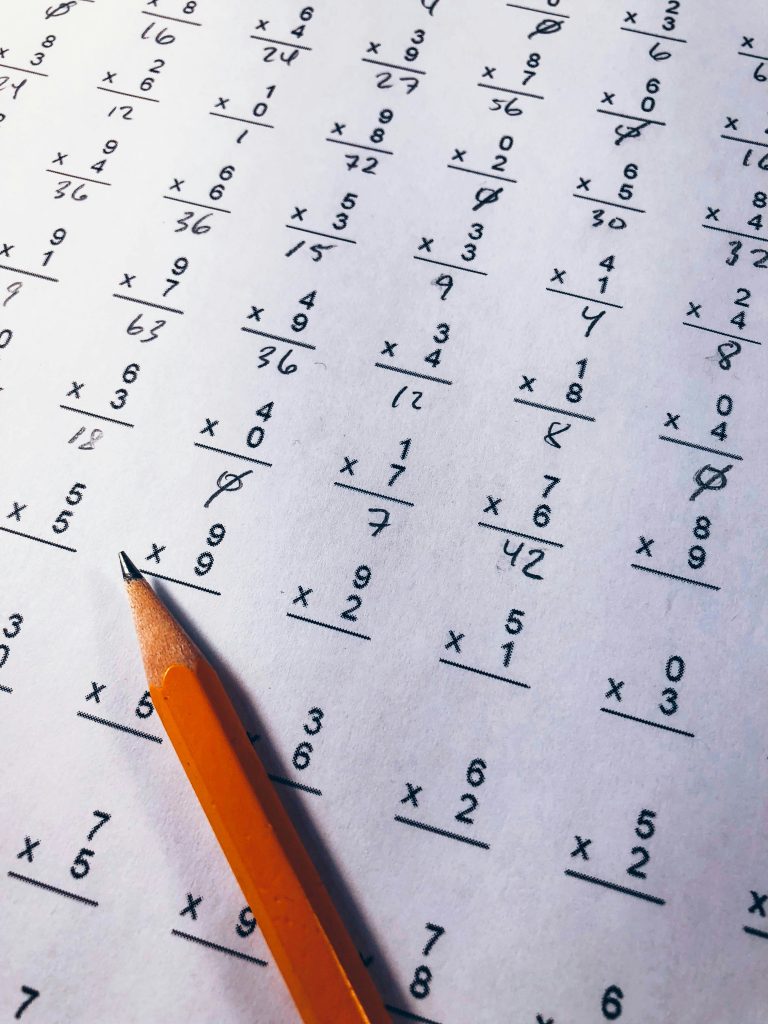Building Math Confidence in Young Learners

Many children find math intimidating, but with the right approach and tools, they can develop the confidence needed to excel in this subject. In this blog, we will explore the world of abacus learning and how it can help build math confidence in young learners. By incorporating abacus classes into your child’s educational journey, you can unlock their true potential and set them on a path to mathematical success.
Why are Kids Intimidated by Math Learning?
Mathematics has a reputation for being an abstract and challenging subject. It is a cumulative subject, where each grade builds upon previously learned material. This means that students need a solid foundation to succeed in later grades. Understanding these aspects can help parents support their children’s mathematical development.
Learning Math With Confidence
Building confidence in math is crucial for students to succeed. It’s essential to help children see math as a skill that can be learned rather than a talent they either have or don’t have. Encouraging regular practice and finding ways to make math enjoyable, such as incorporating games and puzzles, can help children develop their math skills. Normalising mistakes and emphasising the learning process also play a vital role in building math confidence.
Tips for Building Math Confidence in Young Learners
Building math confidence in young learners is crucial for their overall academic success and personal growth. Let’s explore some practical tips for parents to help their children build math confidence:
-
Choose Your Words Carefully:
The language we use when discussing math with children can significantly impact their confidence. Avoid using absolute terms like “You’re just not a good math student” or “This isn’t hard, why are you having difficulty?” Encourage children to explore different solutions and celebrate their progress, regardless of the outcome. By focusing on their efforts rather than innate abilities, you can foster a positive attitude towards math.
-
Play Games to Make Math Fun:
Incorporating math games into your child’s learning routine can make math more engaging and enjoyable. Games like Monopoly, Chess, card games, and number games provide opportunities for children to practice mathematical concepts in a playful way. By playing these games together, you can also strengthen the parent-child bond and create positive associations with math.
-
Set Realistic Math Goals:
Working with your child to set realistic math goals can boost their motivation and sense of accomplishment. Regularly revisit these goals to track progress and reinforce their growth mindset. By setting clear objectives and acknowledging their achievements, you empower your child to take ownership of their learning.
-
Find Inspiring Examples:
Exposing your child to inspiring examples of successful individuals in math-related fields can ignite their passion for mathematics. Invite guest speakers who work in science, technology, engineering, or arts-related professions to share their experiences and career paths with your child’s class. Learning about real-world applications of math can inspire children to pursue their interests and strive for excellence in the subject.
How is Learning Math Basics Using Abacus Helpful?
Learning math through the abacus offers numerous benefits for young learners.
-
Mental Math Ability: One of the main advantages of abacus learning is the development of mental math skills. This ability to calculate mentally and quickly boosts their confidence and makes math more accessible.
-
Logical Thinking and Problem-Solving: Abacus learning trains children to think logically and approach problem-solving in a structured manner. They learn to break down complex problems into smaller, manageable steps and use logical strategies to find solutions. These problem-solving skills are transferable to other areas of life and contribute to overall cognitive development.
-
Concentration and Focus: Children need to pay attention to each bead and its position while performing calculations. Regular practice with the abacus strengthens their ability to concentrate, which can benefit them in other academic subjects as well.
-
Self-Confidence: Children realise that with patience, practice, and perseverance, they can overcome challenging math problems. This boost in self-confidence extends beyond mathematics and positively impacts their overall academic performance.
Summing Up
Abacus learning is a powerful method that can significantly boost math confidence in young learners. By developing mental math skills, children not only excel in mathematics but also enhance their overall cognitive abilities. Abacus classes, such as those offered by SIP Abacus India, provide a structured and proven methodology for children to develop these skills. SIP Abacus uses visualisation techniques and interactive learning tools to engage children in the learning process.
Through abacus learning, children develop strong mental math abilities, improve focus and concentration, and enhance their overall intelligence. They gain a competitive edge in exams and future tests, fostering confidence, self-esteem, and personality development. Studies have shown that children who complete the SIP Abacus program perform significantly better in math and reading at school.
If you want to empower your child with math confidence, consider exploring abacus classes. With the right guidance and support, your child can unlock their true potential in mathematics and beyond.



